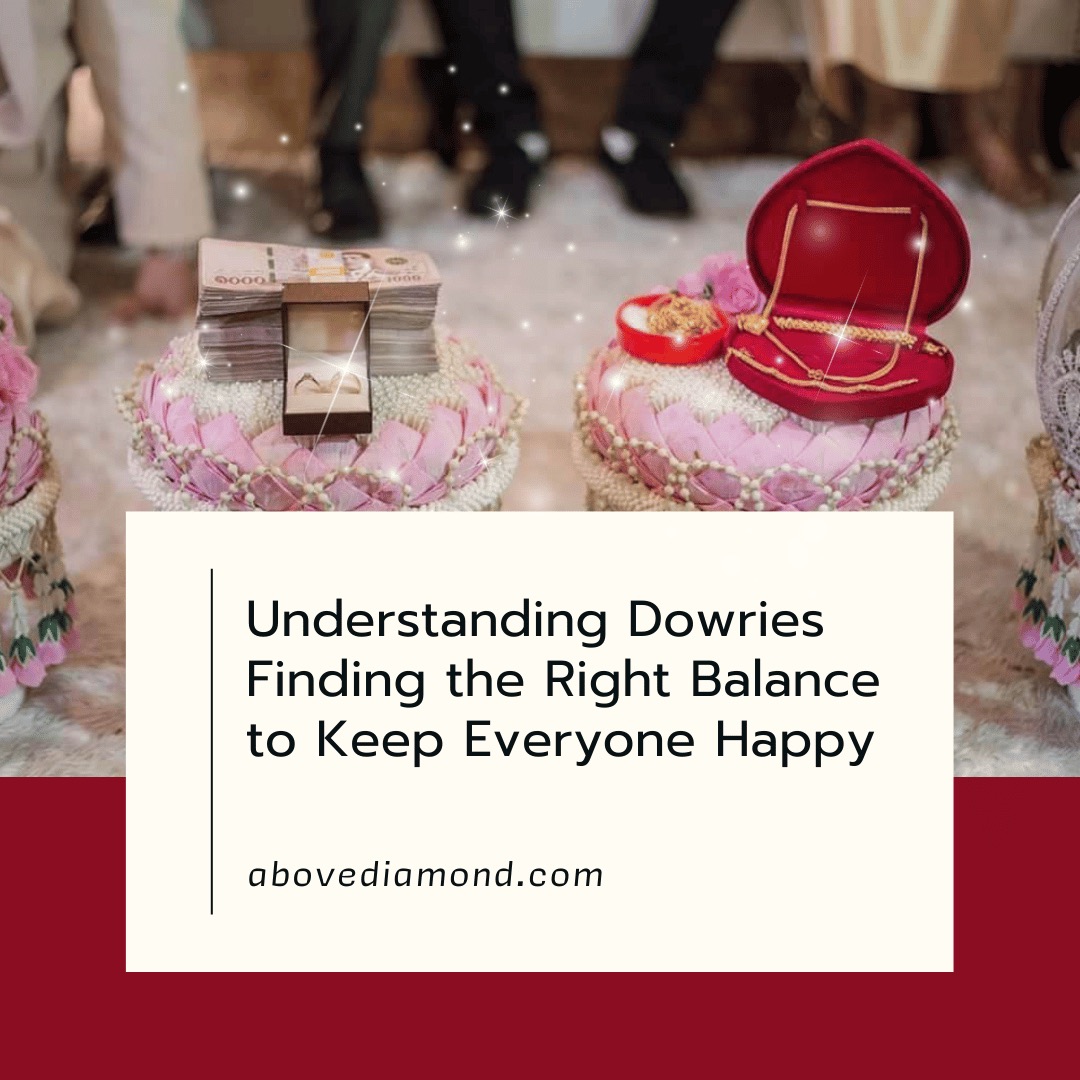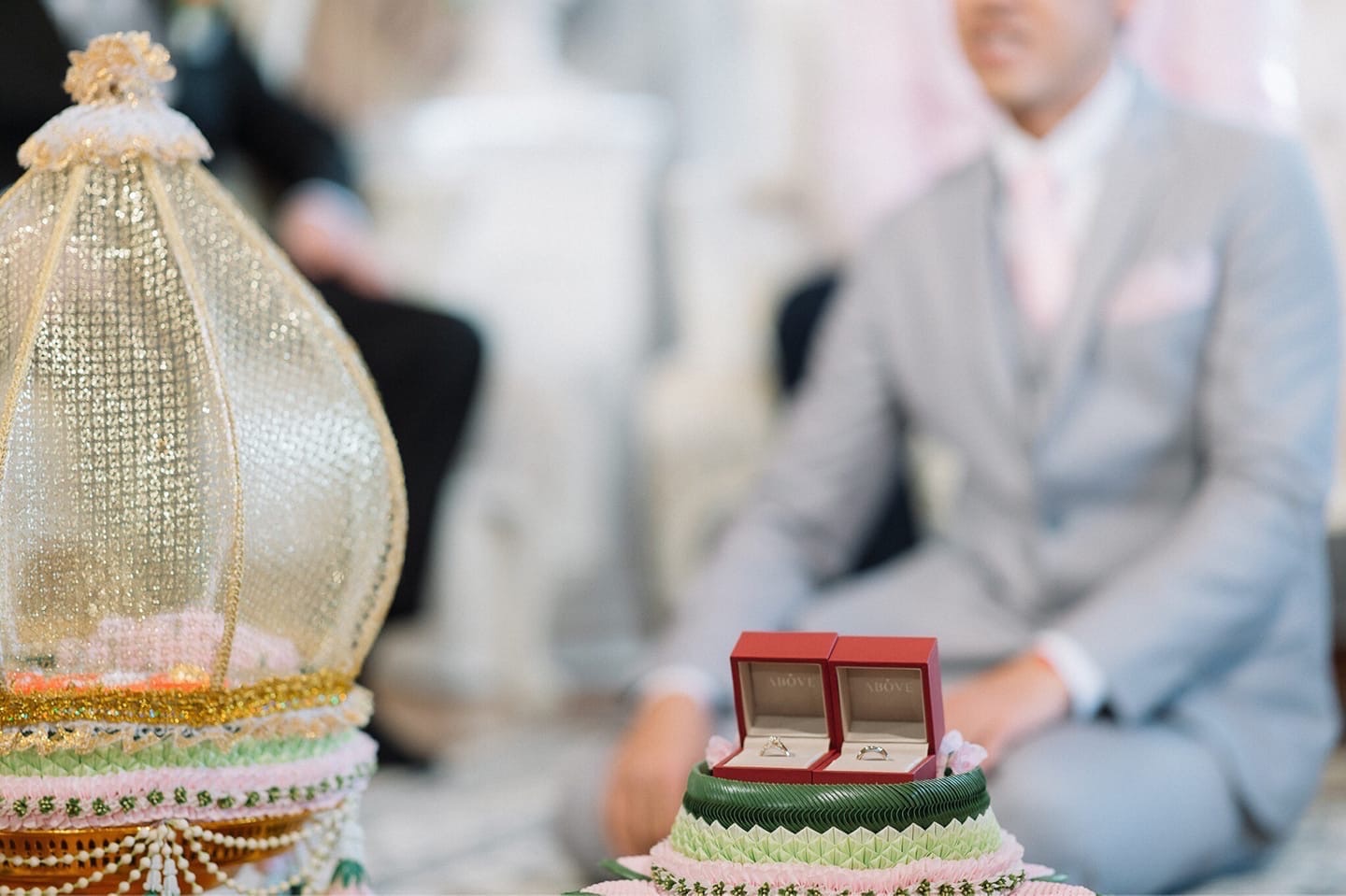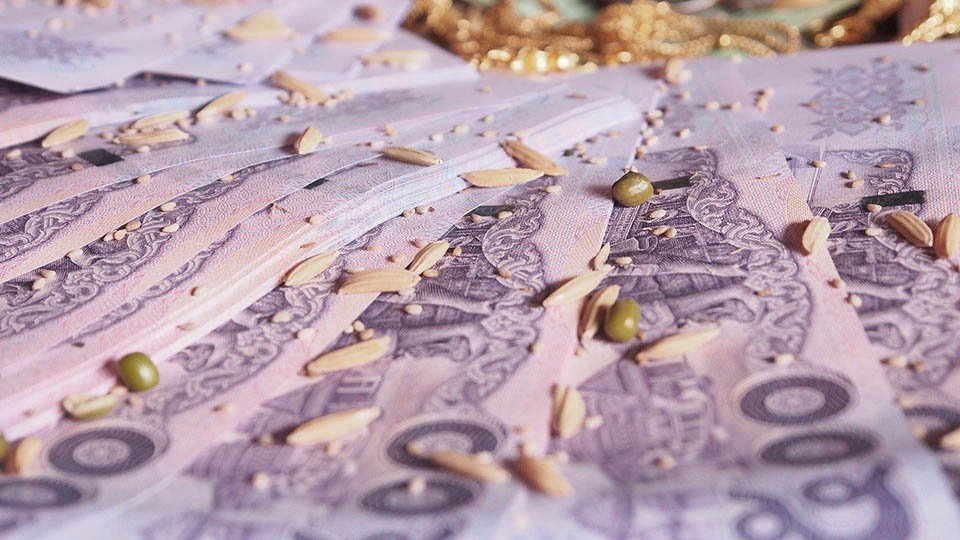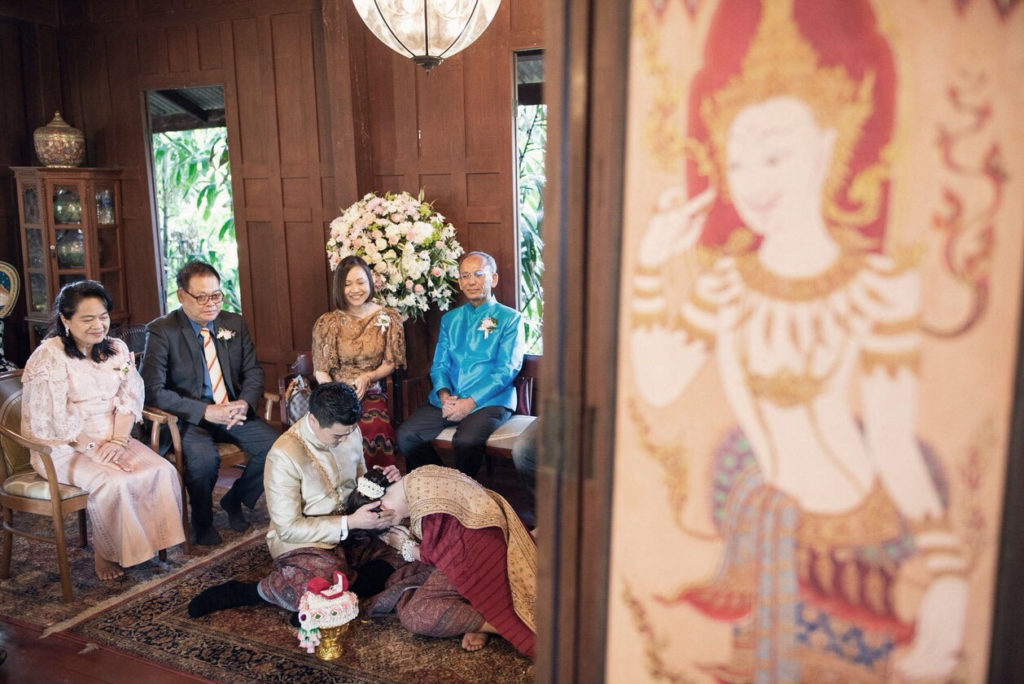Understanding Dowries: Finding the Right Balance to Keep Everyone Happy
A Successful Marriage Often Comes with Financial Stability: The Significance of the Dowry

A successful marriage often comes hand-in-hand with financial stability, making the dowry an important factor that many couples need to prove to the elders before tying the knot. The negotiation of the dowry is a delicate matter, requiring tactful discussion to ensure that all parties are satisfied.
Once you and your partner have passed the proposal stage—whether it’s arranging for the wedding ring or settling the details of the ceremony—the next crucial step in Thai tradition is often negotiating the dowry with the elders before the wedding can take place. Sometimes, this can be difficult to avoid.
This process can be sensitive and challenging for many couples because it requires compromise to satisfy everyone involved. At the same time, the groom should not be overly accommodating beyond his financial capability. Many couples have had to postpone or even cancel their wedding because they couldn’t agree on the dowry.
In this article, Brooke aims to shed light on all aspects of the dowry, helping you understand the reasons behind the elders' expectations and offering tips on how to approach this conversation in a way that puts everyone at ease. We’ll also discuss whether the dowry is still necessary in today's society. Ready? Let’s dive in!
What is a Dowry? What is an Engagement Gift?


A dowry is the property given as compensation for consenting to the marriage. In Thailand, this typically refers to the assets given by the groom to the bride's parents or guardians, usually in the form of money. This tradition still exists in many parts of the world, including China, India, Africa, and even Islamic weddings
An engagement gift, is a form of dowry that is not monetary. It could include valuable assets such as gold, diamonds, jewelry, houses, cars, condominiums, or shares in various stocks. Traditionally, the engagement gift becomes the bride's possession, serving as her personal assets after the marriage.
Why Is a Dowry Required in Thai Traditions?
The tradition of giving a dowry has been a part of Thai society since ancient times. In the past, marriages were often arranged, with neither the bride nor the groom choosing their partners. Parents made these decisions to ensure that their children married into families of suitable status, so they would not face hardship, particularly in households with daughters. In those times, it was essential for daughters to leave home and rely on the husband, who was considered the head of the household and the primary breadwinner.
However, arranged marriages carried a risk for the bride's family, as the marriage was not based on love. If the groom later decided to cancel the wedding, the bride would be left as a “widow of the tray” (a term for a woman who was left unmarried after a wedding cancellation), losing the opportunity to marry another man.
To manage this risk, the bride's family would request a dowry as a form of assurance that the groom intended to marry. If the wedding were canceled later, at least the bride's family could keep the dowry as a form of compensation.
In Thailand, according to the Civil and Commercial Code, Section 1437, the dowry amount must be agreed upon before the marriage, but it can be given either before or after the wedding. Once the dowry is given, it belongs to the bride's parents immediately.
Additionally, both the man and the woman must intend to register their marriage legally. If they do not intend to legally marry, the property given is not considered a dowry, meaning the groom cannot demand its return. The only exception is if the wedding does not happen due to an issue caused by the bride or if she refuses to marry, in which case the dowry must be returned to the groom.
Today, while women play a larger role in earning income and contributing to the household, the dowry tradition remains strong in Thai society. It is still viewed as a guarantee of the bride's status upon marriage and is also considered a way to repay the bride's parents for raising and educating her properly. Additionally, it serves as a way for the bride’s family to take pride and gain respect within society.
How Much Dowry Should Be Prepared?


This is a significant question many people wonder about, and it has even led to research in the field of economics to find a formula for calculating the appropriate dowry.
In the master's thesis of Pasu Ruamkhamkid, titled "If I Were to Get Married, How Much Dowry Should Be Given/Received?" from the National Institute of Development Administration, it was stated that there is no fixed price or trend for dowries. The amount depends on the satisfaction of both families after negotiation.
This means that you need to calculate both the amount the groom is willing to pay and the amount the bride’s family expects to receive, then find a middle ground.
Pasu’s research also found that the value of the dowry depends on characteristics of both the groom and the bride. The most influential factors are income levels, education, family responsibilities, and whether it’s the first marriage in the family.
Pasu developed a formula based on research trends. According to the findings, for every increase of one baht in the couple’s combined income, the dowry increases by 2.205 baht. Other factors also have weight, such as the couple's age, location, education, career, and family responsibilities.
The formula for calculating an appropriate dowry, based on the average values of couples, looks something like this:
Dowry Amount = (2.2205 x Monthly Income) + (8,986.92 x Age) + (174,818.6 if in Bangkok) – (454,350.5 if education is no higher than high school or vocational diploma) + (227,064.1 if it’s the first marriage in the family) – (134,160.8 if there are family responsibilities) + (1,890,610 if in a senior management position)
Sounds complex, doesn’t it? Luckily, a program has been developed to model this dowry calculation, which you can download and try out here Since this research was conducted in 2006, you may want to adjust for inflation by approximately 3.5% per year to get more accurate figures.
Even though you and your partner may get a number from this calculation, remember that this formula is just a guideline based on research. The final amount will depend on negotiations, and the outcome can differ greatly from the calculated value.
To assess an appropriate dowry, Brooke recommends following these steps:
- Try estimating the dowry value using the calculation tool mentioned above.
- Reflect on whether you can afford the estimated value. If not, determine a comfortable range from minimum to maximum.
- Consider what the bride's parents might expect in terms of a dowry range, from minimum to maximum.
- Find a compromise that satisfies both parties. If the numbers don’t align, consider other valuable assets you can offer or promise to provide later, in place of a lump sum of money.
Read more: How Much Does a Wedding Cost in Thailand?
Steps to Negotiating the Dowry with Elders


By using the dowry evaluation method outlined above, you will have a better understanding of your position and be able to anticipate the expectations of the bride’s family. Now comes the important step of negotiating the dowry with the elders. This process requires humility, tact, and skilled negotiation with the right choice of words. So, how should you approach this? Let’s take a look:
1. The Bride Subtly Asks the Elders About Their Expected Amount
Even though you may already have a number in mind, it’s better if you ask the bride to discreetly inquire with her parents about their expectations for the dowry. This will help you better gauge the dowry amount or find a solution that satisfies everyone. If the elders are unsure about the figure, you could show them a rough estimate using the dowry calculation program mentioned earlier.
2. The Bride Hints at the Amount the Groom Can Afford
Once you know the amount the bride’s parents are satisfied with, the groom should then assess his own budget. From the range of amounts he can afford, the bride can subtly mention to her parents the approximate amount the groom is able to pay and gauge their reaction to see if they are comfortable with it.
As a negotiation tip, Brooke suggests that the groom starts by offering the lowest amount he can comfortably afford (while still appearing respectable) and gradually increase it based on the elders' reaction. Similarly, if you are the bride’s parents, you can start by mentioning the highest amount you’re comfortable with.
3. Arrange a Meeting with the Elders
This step is crucial to show the bride’s family your respect, humility, and sincere intention to marry out of love. Approach the discussion in a friendly, polite, and calm manner. Since both you and the bride’s parents likely have a rough figure in mind beforehand, it should make the negotiation easier.
4. Communicate Clearly
If possible, state the amount you can afford and listen to the elders' response. If they are not fully satisfied, gradually increase the amount bit by bit, staying within what you can manage. Negotiate calmly and focus on what you can offer. If the discussion becomes heated, consider taking a break to ease the tension.
If the bride’s parents still want a higher dowry, explore whether you can offer other valuable assets or agree to provide more after the wedding.
5. Finalize an Agreement
The agreement will serve as a guarantee for the dowry amount that the bride’s family will receive and ensure that the groom fulfills his part. This will benefit both parties by preventing misunderstandings or conflicts in the future, which could affect the marriage in the long run.
Renting a Dowry
It’s worth mentioning that the dowry rental business is booming in today’s wedding industry, with prices starting from tens of thousands to hundreds of thousands of baht. The cash and assets available for rent range from hundreds of thousands to tens of millions of baht.
The typical clients for these services are couples who may not have enough funds to cover the dowry on the wedding day but still want to present an impressive dowry at the ceremony to honor themselves and their families.
The rented dowry can include cash, gold bars, gold jewelry, and luxury cars, and everything is kept confidential so that guests won’t know.
Brooke believes that renting a dowry is a personal decision that can help make a couple’s wedding more complete. However, a situation to be cautious of is renting assets to present to the bride’s family without informing them beforehand. This could lead to misunderstandings where the bride’s parents assume the assets are theirs. When it’s time to return the rented items, it could cause conflicts, as has happened in some well-known cases that escalated to the point of legal action.
Can a Wedding Happen Without a Dowry?


The answer is: absolutely! Although giving a dowry is a longstanding tradition, it is not legally required. Nowadays, it has become more of a symbol reflecting the family’s status and a gesture of gratitude toward the parents, rather than a guarantee of marriage as it was in the past.
However, deciding to have a wedding without a dowry may not be solely up to the couple. Thai society places a strong emphasis on maintaining harmonious family relationships, and it’s important to preserve goodwill between all parties involved.
If you and your partner don’t want a dowry at your wedding, the key is to “negotiate” with understanding and compassion. You can discuss what alternative arrangements could be made to ensure the parents are comfortable with the decision.
However, if a dowry is non-negotiable, you and your partner can follow the negotiation process I previously suggested, making sure not to strain your finances or overextend yourselves. This way, you’re still doing your best to maintain the relationships surrounding your marriage.
The Dowry as a Test of Love
Marriage is often more than just a union between two people; it’s about managing the relationships around you and ensuring they harmonize. No matter how challenging this new chapter in your life may be, Brooke believes that every effort will be worth it in the end.
If you are planning your wedding and want to design your own wedding rings—whether diamond rings or plain bands—you can schedule a free consultation with our experts at Above Diamond.